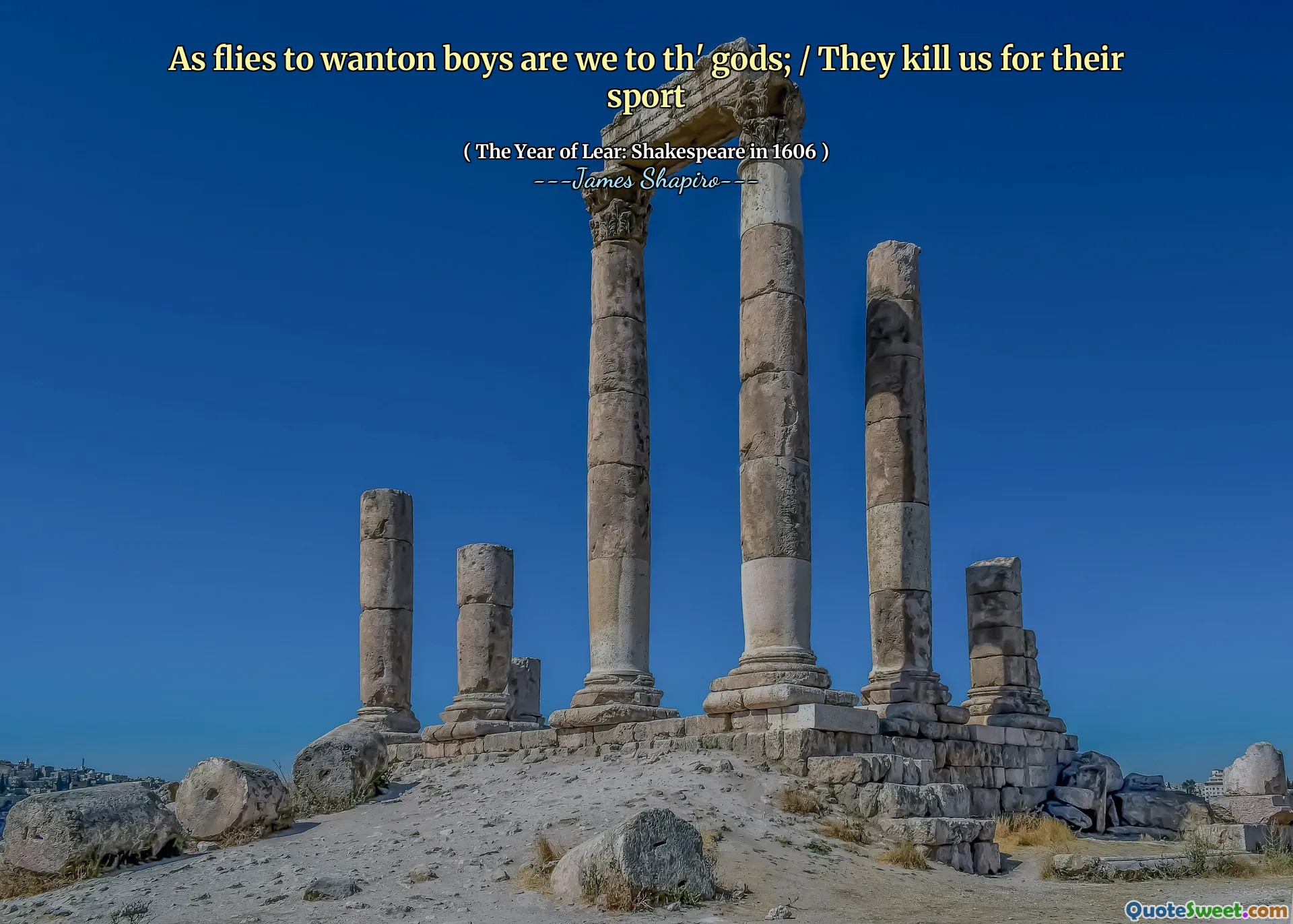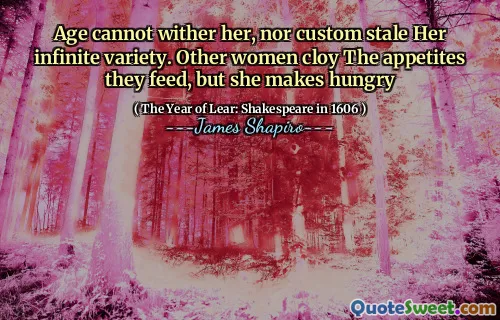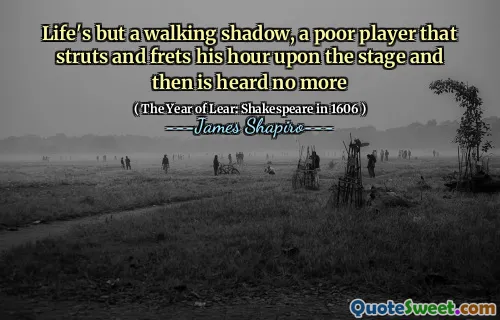
As flies to wanton boys are we to th' gods; / They kill us for their sport
In "The Year of Lear: Shakespeare in 1606," James Shapiro explores the darker themes present in Shakespeare's works during this period, particularly the feeling of powerlessness in the face of capricious fate. The quote "As flies to wanton boys are we to th' gods; They kill us for their sport" encapsulates the idea of humans being at the mercy of greater forces, portrayed as indifferent and playful entities. This reflects a sense of existential dread, where life is seen as precarious and subject to the whims of those in power.
Shapiro delves into how this philosophical outlook influenced Shakespeare's writing, highlighting the tension between human agency and the forces that shape destiny. The acknowledgment of being mere playthings to divine powers resonates throughout the narratives in Shakespeare's plays, inviting audiences to reflect on their own vulnerabilities and the nature of existence. This exploration is particularly poignant in the context of the historical backdrop of 1606, where societal upheaval mirrored Shakespeare's thematic concerns.











